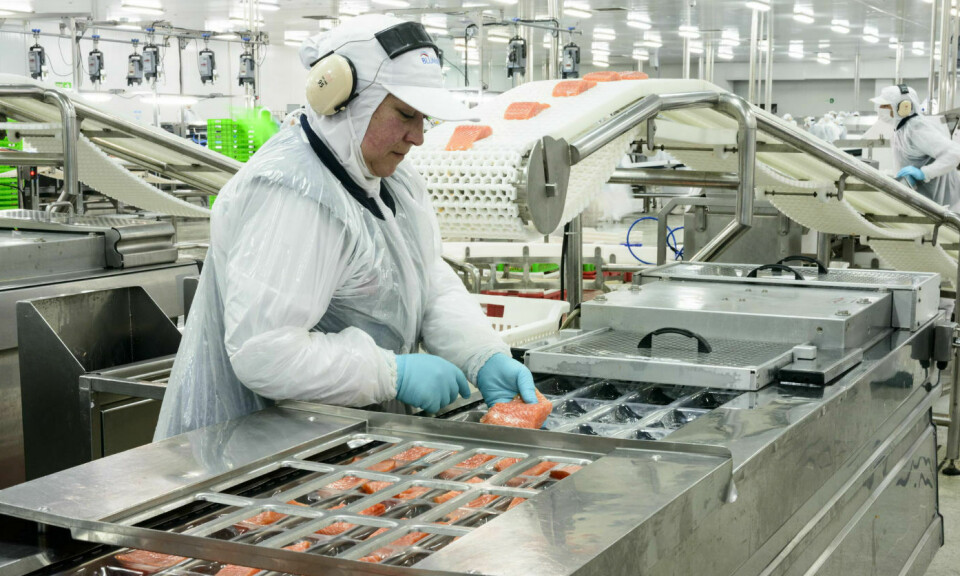
Chilean salmon farmer is fined and has site suspended
Blumar alleged to have overproduced by 657 tonnes at farm and to have provided unreliable information to state aquaculture agency
A court has ordered Chilean salmon farmer Blumar to pay a fine of 500 monthly tax units (approximately US $40,000) and suspend operations at one of its sites for a farming cycle after allegedly providing state aquaculture agency Sernapesca with production information that didn’t tally with the results of an audit.
Analysis and documentary verification carried out by Sernapesca officials in Aysén evidenced that the information reported by the company did not match what was audited, which led to the presumption that Blumar had supplied unreliable information unreliable to Sernapesca, reports Fish Farming Expert’s Chilean sister site, Salmonexpert.cl.
According to the information provided by Sernapesca to fisheries and aquaculture ministry Subpesca, the farm in question – known as Dring 2 - issued Movement Authorisation Certificates and harvest labels declaring the departure of 4,561 tonnes of Atlantic salmon destined for three processing plants and three holding centres.
Exceeded production
The Court of First Instances of Puerto Aysén was told the Dring 2 farm exceeded the volume of fish it was allowed to produce by 657 tonnes.
In addition, it was found “that the company provided unreliable and out-of-term information to the supervisory body, declaring that it had stocked 9,067 fewer fish than were registered at the beginning of the cycle in 2015”.
It was said that the company exceeded the limit of fish it was allowed to stock in seven of the 24 pen structures of the Dring 2 farm.
Blumar told Salmonexpert.cl that to date “we have not been notified of the sentence reported to the press. Blumar is a company that respects the institutionality, so the judicial resolution will be discussed once it has been notified and all the corresponding procedural instances have been exhausted”.
'A serious offence'
Soledad Tapia, national director of Sernapesca, said the delivery of unreliable information detected by the agency’s inspection teams was a serious offence, and the agency was very satisfied with the court’s ruling.
“We hope that it is exemplary and in this way there is no doubt about the importance and responsibility with which the aquaculture sector must act, carrying out its activity within the regulatory framework and in favour of sustainability,” added Tapia.
Sernapesca Aysén regional director Juan Carlos Orellana said the case was the result of the coordinated and comprehensive work of the service. “Both the aquaculture inspectors and the Aysén legal team have been very diligent in regulatory compliance and have defined strategies that allow for impact judgments to be obtained, as in this case.”
Once Blumar is officially notified, it will have a period of 10 business days to appeal the sentence.






















































